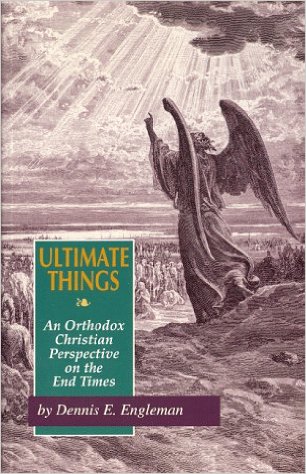“A candle shinning in sheer darkness is much brighter than a candle burning in the twilight.”
– Fr. Hans Jacobse
Quotable quotes
Duty to Share the Truth
AFR | St. Ambrose | July 20, 2009
While listening to Ancient Faith Radio today I heard a really insightful quote from St. Ambrose. I don’t recall the exact wording, but here’s the gist of it.
St. Ambrose exhorted Christians to not only take care of the poor but also to share the truth with others. He said that those that know the truth and fail to share it are just as culpable, or more so, than those that do not do acts of charity for those in need. [Read more…]
Watch Your Thoughts, They Become Words
Watch your thoughts, they become words.
Watch your words, they become actions.
Watch your actions, they become habits.
Watch your habits, they become your character.
Watch your character, it becomes your destiny. [Read more…]
John Stuart Mill on Pacifism
“War is an ugly thing, but not the ugliest of things. The decayed and degraded state of moral and patriotic feeling which thinks that nothing is worth war is much worse. The person who has nothing for which he is willing to fight, nothing which is more important than his own personal safety, is a miserable creature and has no chance of being free unless made and kept so by the exertions of better men than himself.” – John Stuart Mill
Dealing with Immortals
The Weight of Glory | C.S. Lewis
“It is a serious thing to live in a society of possible gods and goddesses to remember that the dullest and most uninteresting person you may talk to may one day be a creature which, if you saw it now, you would be strongly tempted to worship, or else a horror and corruption such as you now meet if at all only in a nightmare.
All day long we are in some degree helping each other to one or the other of these destinations. It is in light of these overwhelming possibilities it is with awe and the circumspection proper to them, that we should conduct all our dealings with one another, all friendships, all loves, all play, all politics. [Read more…]
Communism is a Powerful Anti-Christian Heresy
Throughout the Church age, the mystery of iniquity worked subtly and insidiously to foster unbelief. Satanically inspired humanism, which had received such impetus during the Renaissance and Enlightenment, reached its nihilistic nadir in the early twentieth century in the form of atheistic communism. The utopian ideology which is at the root of communism, and in fact of most secular thought, is seldom clearly realized even by its adherents; it has become part of the unexamined ideological inheritance of the post-Enlightenment era.
“One has to realize what communism is,” insisted Father Seraphim Rose. “Not merely a power-mad political regime, but an ideological-religious system whose aim is to overthrow and supplant all other systems, most of all Christianity. [Read more…]
The more I hate men individually, the more I love humanity.
The more I love humanity in general the less I love man in particular. In my dreams, I often make plans for the service of humanity, and perhaps I might actually face crucifixion if it were suddenly necessary. Yet I am incapable of living in the same room with anyone for two days together. I know from experience. As soon as anyone is near me, his personality disturbs me and restricts my freedom. In twenty-four hours I begin to hate the best of men: one because he’s too long over his dinner, another because he has a cold and keeps on blowing his nose. I become hostile to people the moment they come close to me. But it has always happened that the more I hate men individually the more I love humanity.
Fyodor Dostoevsky “The Brothers Karamazov”
de Tocqueville on religion and freedom
“When the religion of a people is destroyed, doubt gets hold of the higher powers of the intellect and half paralyzes all the others. Such a condition cannot but enervate the soul, relax the springs of the will, and prepare a people for servitude. When there is no longer any principle of authority in religion any more than in politics, men are speedily frightened at the aspect of this unbounded independence. Despotism may govern without faith, but liberty cannot. Religion is much more necessary in democratic republics than in any others. How is it possible that society should escape destruction if the moral tie is not strengthened in proportion as the political tie is relaxed?” -Alexis de Tocqueville (1805-1859)
Quote: John Adams on morality, religion, and the US
On October 11, 1798, President John Adams addressed the officers of the First Brigade of the Third Division of the Militia of Massachusetts in a letter:
“We have no government armed with power capable of contending with human passions unbridled by morality and religion. Avarice, ambition, revenge, or gallantry, would break the strongest cords of our Constitution as a whale goes through a net. Our Constitution was made only for a moral and religious people. It is wholly inadequate to the government of any other.”
From: TheAmericanMinute
Dennis Prager on religion, law, and the left
“The religious have a belief in God-based moral law, and the Left believes in man-made law as the moral law. [W]hereas they cannot change God’s laws, those on the Left can and do make many of society’s laws. In fact, the Left is intoxicated with law-making. It gives them the power to mold society just as Judeo-Christian values did in the past. Unless one understands that leftist ideals function as a religion, one cannot understand the Left. Laws are the Left’s vehicles to earthly salvation.” –Dennis Prager


